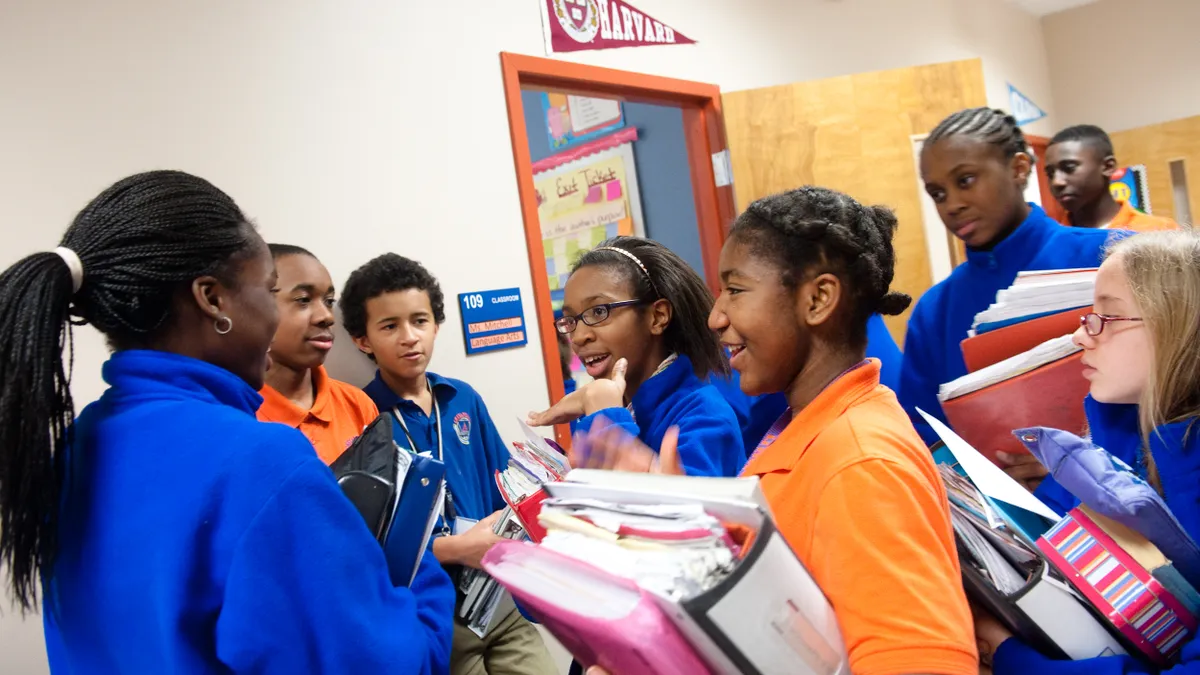Dive Brief:
-
A number of states and cities are enacting policies that would protect black students from being disciplined for their hairstyles under school dress codes, Chalkbeat reports.
-
Last year, California, New York and New Jersey passed laws banning discrimination based on styles or textures typical of race and cultures, and Cincinnati, New York City and Montgomery County in Maryland have similar bans.
-
Thirteen states and Baltimore are also considering similar measures. On the federal level, Sen. Cory Booker (D-New Jersey) has introduced a federal bill that would ban hair discrimination in response to the incident in which a New Jersey high school wrestler was forced to cut his hair before a match.
Dive Insight:
Studies show black students are disciplined at disproportionate rates, and recent research indicates those numbers may be linked to levels of racial bias in the surrounding community.
Considering that disciplining students can eventually affect their achievement and life outcomes, this could have a particularly concerning impact on students of color. According to a study by the American Educational Research Association, districts with a large racial discipline gap in grades 3-8 also have larger achievement gaps. Research also indicates exclusionary discipline and harsh discipline policies lead students to disconnect from school, particularly students of color and those with disabilities.
Recent incidents of discrimination over black hairstyles have raised alarms nationwide, including that of 15-year-old girls at a Boston-area charter school who were disciplined for wearing braided hair extensions and another where Andrew Johnson, a high school wrestler, was forced by a referee to cut his hair before a match.
After footage of Johnson went viral and highlighted the issue on a national stage, many principals revisited their policies. Among them was Indianapolis principal David McGuire, who rethought his school’s ban of male hairstyles including braids, twists, dreadlocks or hair longer than three inches. McGuire’s school decided to roll back its ban at the start of the 2018-19 school year, saying the incident and the "outlandish rules" behind it helped spark a necessary dialogue about school policies and their racial and social implications.






 Dive Awards
Dive Awards






